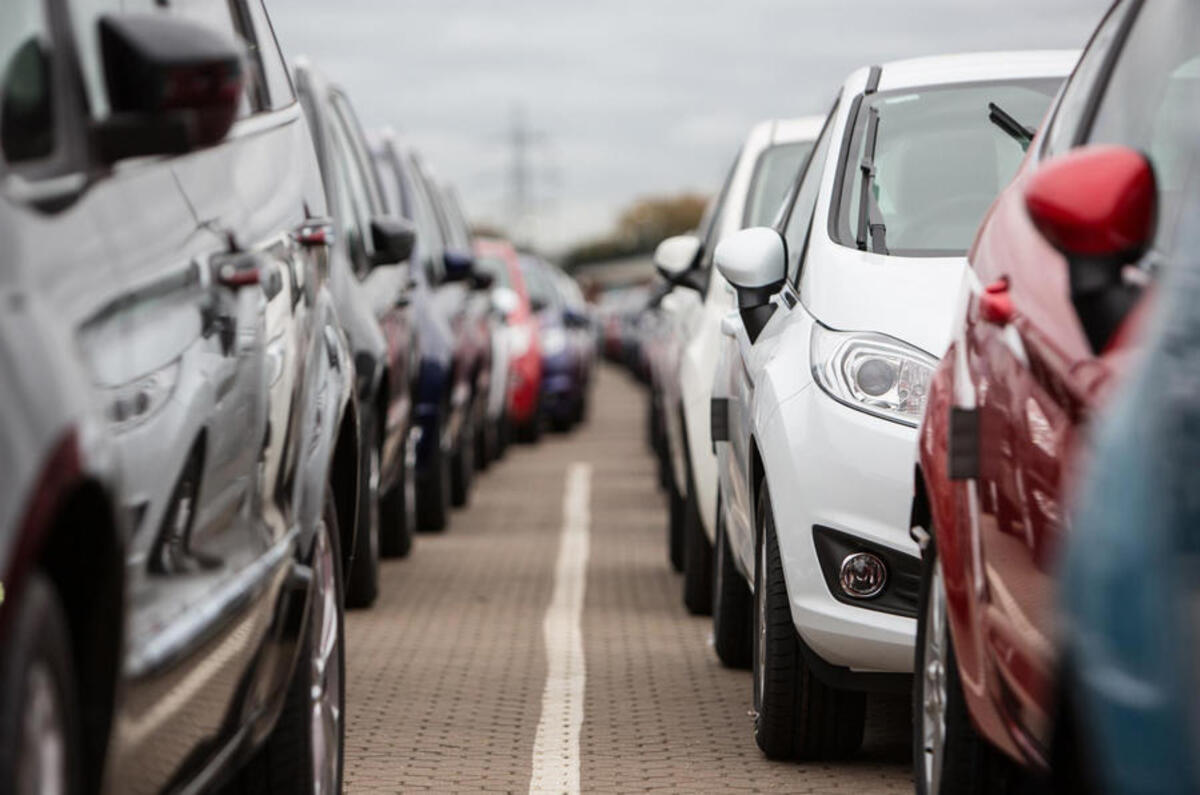Falling diesel car sales in January are the leading reason for an overall decline in the UK car market in the first month of the year.
The news reflects a continuing trend: in 2017, UK car sales dropped by 5.7%, with a 17.1% decline in diesels. However, diesels were hit even harder towards the end of last year, with a fall of 31.1% from July to December.
Top 10 best-selling cars in the UK
The number of diesel-engined cars sold in the UK dropped by 25.6% in January, contributing to an overall decrease of 6.3% (or 162,615 units sold) compared with the same month last year, according to the Society of Motor Manufacturers and Traders (SMMT).
Petrol car sales rose by 8.5% and alternatively fuelled vehicles (electric and hybrid models) by 23.9%, but both of these increases failed to offset the ongoing fall in diesel registrations.
As a result, diesel market share now holds only 36% of the overall market. In the past, it has accounted for more than half of all cars sold. Electric and hybrid models are slowly gaining ground with 5.6% market share, compared to 3.5% in January last year.
The SMMT, talking about the diesel fall, said "confusion over government policy continued to cause buyers to hesitate," referring to ongoing miseducation about brand new diesel cars having the same detrimental effect on air quality as older, diesel cars.
By contrast to the UK, the overall German car market is expected to be up 12% in January, a source told Automotive New Europe, but diesel sales are set to have declined by 17%.
The hit on diesel has also affected UK car manufacturing: last week, it was announced 2017 production was down 3%. The downturn was largely attributed to poor domestic demand thanks to “declining business and economic confidence and confusion over government’s policy on diesel”, said the SMMT at the time.
SMMT chief executive Mike Hawes said: “The ongoing and substantial decline in new diesel car registrations is concerning, particularly since the evidence indicates consumers and businesses are not switching into alternative technologies but keeping their older cars running.”
He added: “Given fleet renewal is the fastest way to improve air quality and reduce CO2, we need government policy to encourage take-up of the latest advanced low-emissiond diesels as, for many drivers, they remain the right choice economically and environmentally.”
The SUV segment was the only one to show growth in January, with a 6.6% uplift leading to a record market share. They now account for a fifth of all new car registrations.
The biggest segment declines were mini, MPV and executive segments.
The Ford Fiesta, which holds the top spot the majority of the time, was a runaway success in January, selling 8335 units. By comparison, the second-placed Volkswagen Golf accounted for 4310 units. The Ford Focus came third.
Car makers faring well in January include Mini which increased its sales compared to last January by 25.9%, while Seat was up by 9.0%. Those hardest hit include DS, down 55.9% and Fiat, down 46.8%.
Vauxhall, whose sales dramatically decreased in 2017, finishing the year 22.2% down, started 2018 slightly more positively, with a drop of 8.8%. A spokesman told Autocar there was "no single contributory factor to its latest results, but added that it expects its Grandland X SUV to contribute significantly to sales volume over the next few months. "We have the right mix [of models] now, with three SUVs. Admittedly we didn't before," he added.
Volvo, whose new Volvo XC40 compact SUV adds to an a relatively new model line-up, has dropped 18.8%. Volvo UK boss Jon Wakefield said the registrations were in lines with its plan, and that retail customers were up 14%. He added: "With an extremely positive order take in January for the XC60, XC90 and new XC40, we anticipate a buoyant 2018 for Volvo in the UK.”
Read more




Join the debate
Add your comment
Looking forward
The average list price of new cars has increased by 30% in the last decade, so perhaps sales of new cars has just hit a natural peak? If it's going to take a mortgage to buy a new car (and insure it), then buyers will be even more careful with regards to re-sale values, so any negaitive publicity on a perticular fuel or style of vehicle will effect values.It should be no surprise diesels sales are failing, same with values of MPV's becuase everyone now wants SUV's... the joys of trying to plan ahead.I would love to upgrade my 8 year old diesel to a new Euro 6 version as I cover 35k a year and so prefer a diesel's mpg, but I don't want to loose excessive money through depreciation so will keep my old car for now... sorry.
No moderator?
Hey chaps, this a family car magazine website. Can we stop with the effing and jeffing. It’s a bit unnecessary and out of context.
VW did diesel over for everyone
VW's galactic sized emissions cheating has ensured that no-one will ever trust the word of any car manufacturer again.
Our own eyes and noses tell us that diesel is a dirty stinking fuel and we will believe our own evidence.
Not the word of a criminal lying deciever.
Thekrankis wrote:
Dont get that logic - its VW I dont trust, not other car compaines. Why would people not trust other car companies just cos VW lied ? Thats bit like being mugged by a black man and then not trusting all black people, ie racism - you cant judge a whole group on the actions of one or a samll minority. I dont think that most British people are like that. In fact they couldnt give a monkeys (no pun intended) - theyre still buying VWs by the bucket load, just less diesel ones.